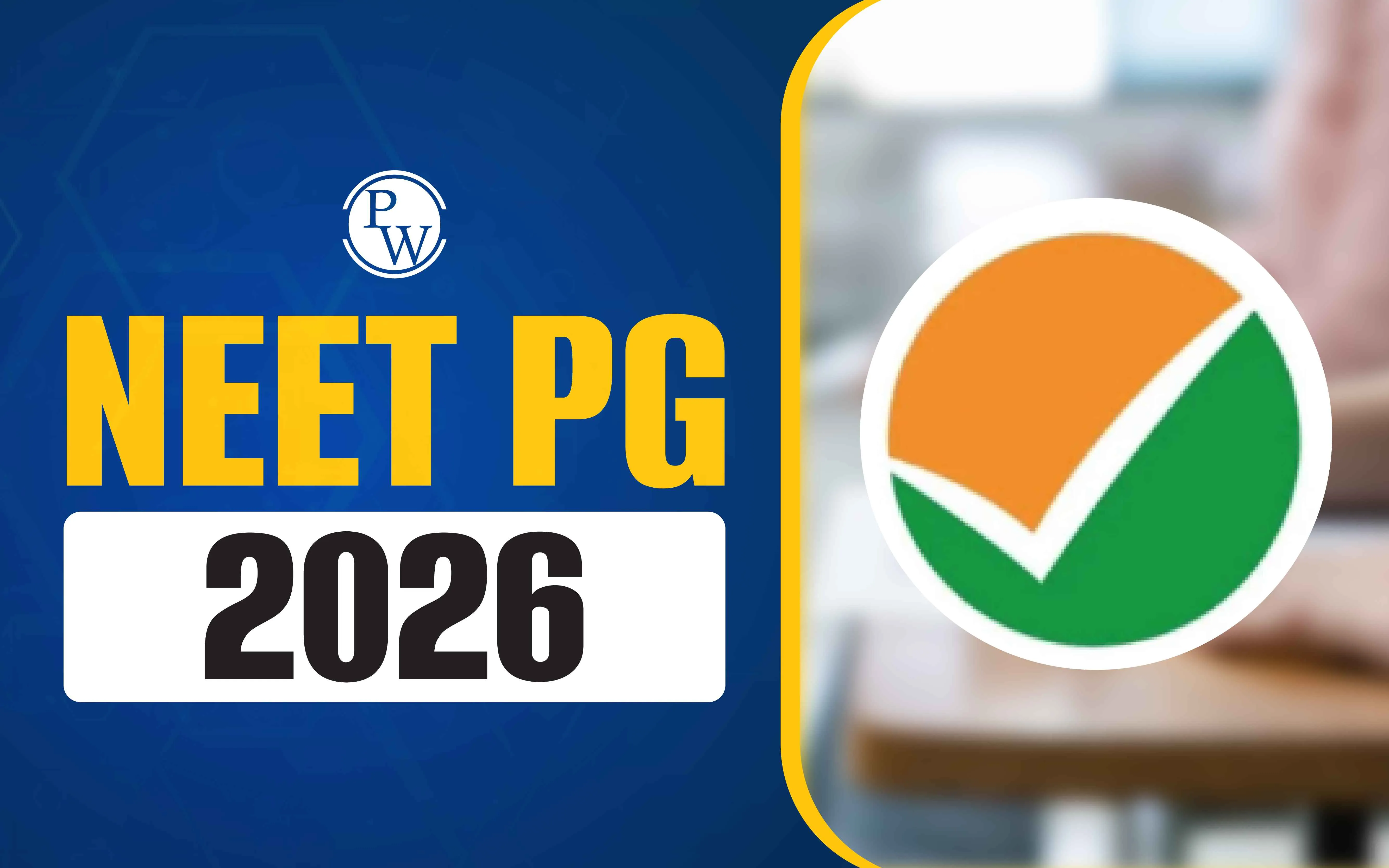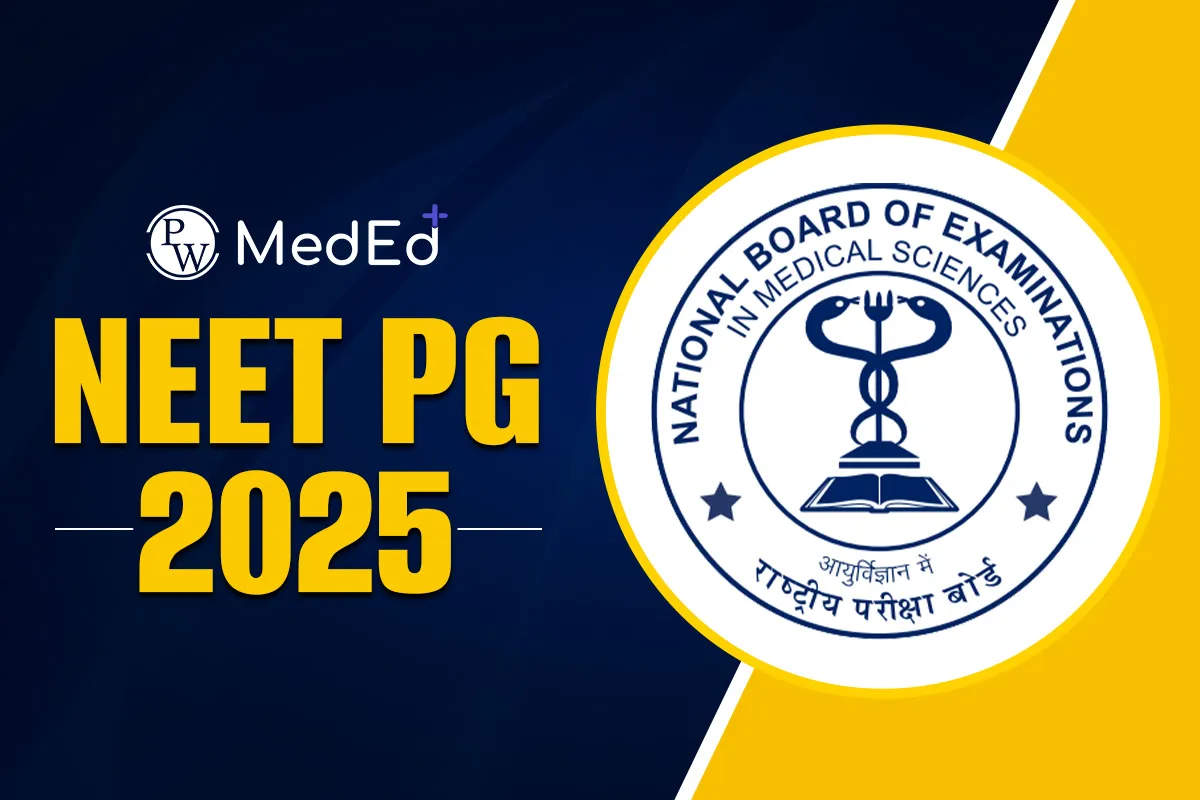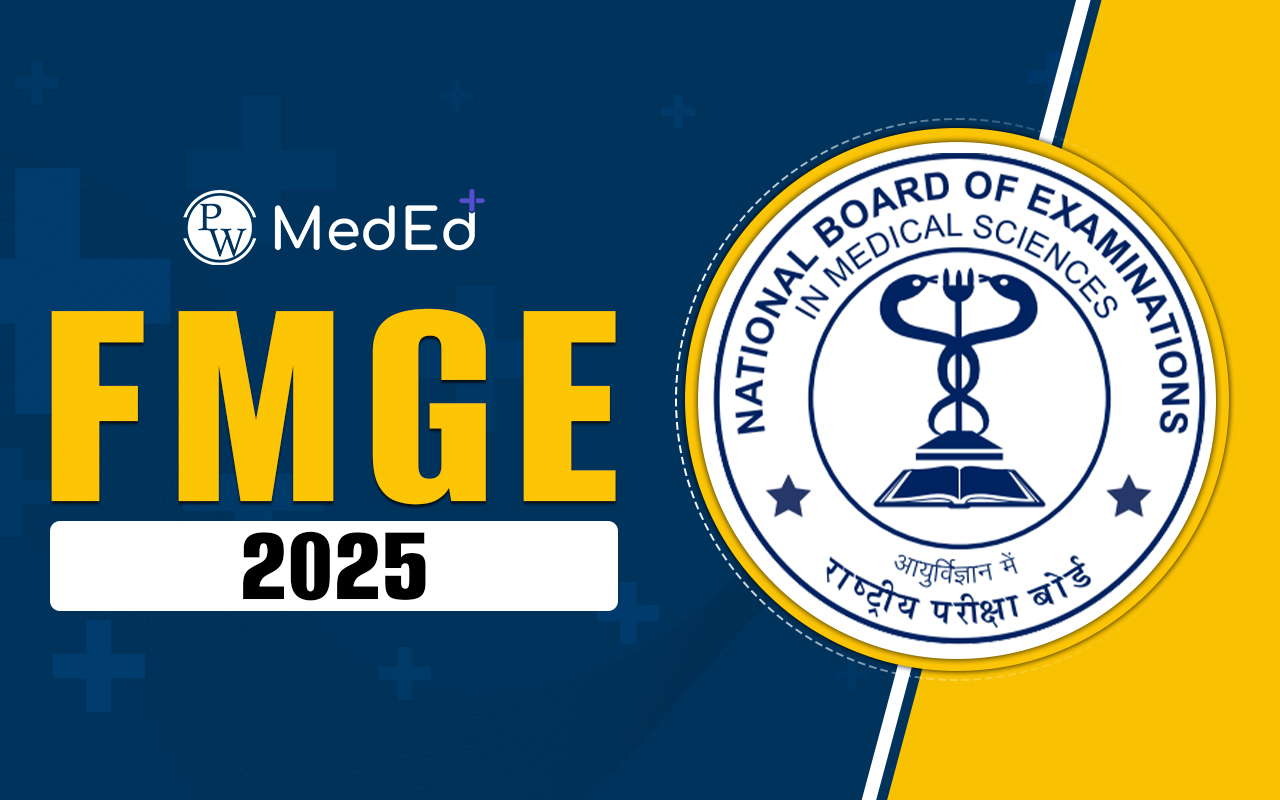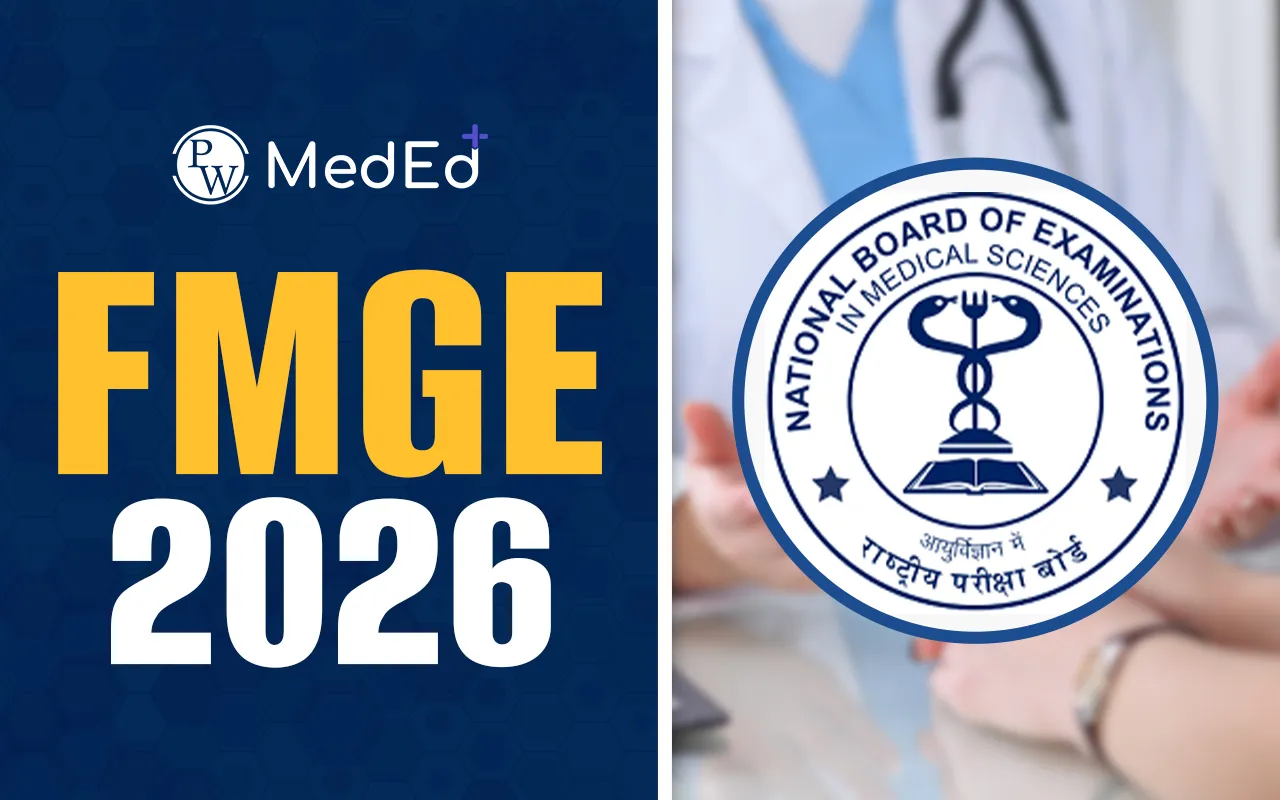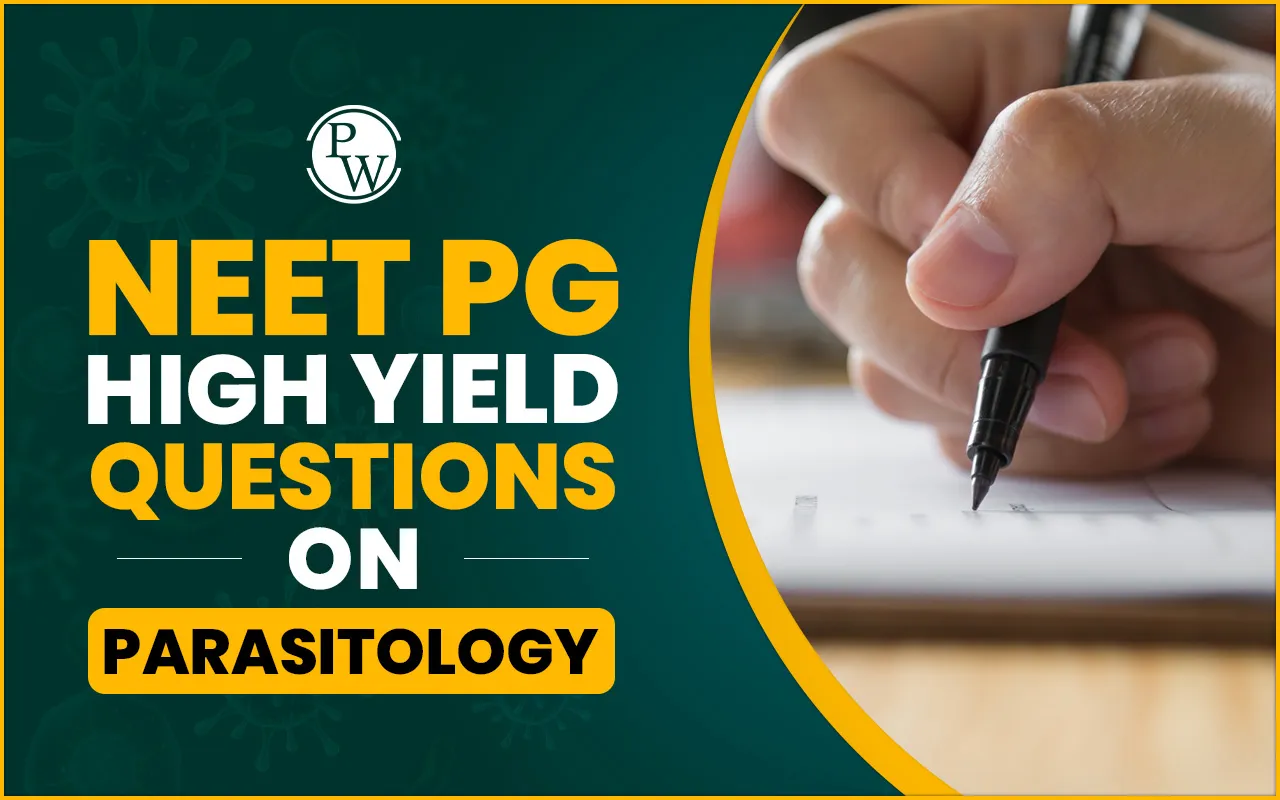
FMGE Syllabus And Exam Pattern 2025 is decided by the National Board Of Examinations In Medical Sciences (NBEMS). In its official information bulletin, NBEMS releases the detailed syllabus and exam pattern for the Foreign Medical Graduates Examination (FMGE) graduates. Candidates who have completed their primary medical degree outside India are required to pass the FMGE screening test. Given the challenging nature of the examination, candidates must be prepared well to excel in FMGE. NBEMS has released the notification for application form submission from 28 April to 17 May 2025. It is high time to get familiar with the FMGE Syllabus And Exam Pattern 2025 and start preparing accordingly as the exam is scheduled for 26 July 2025.
FMGE Syllabus And Exam Pattern 2025 Overview
NBEMS is the authority to conduct the FMGE exam twice a year in June and December. FMGE is a national-level screening test that is conducted to make Indian nationals or OCIs eligible for the registration certificate of the National Medical Commission (NMC). Candidates who qualify for the FMGE cutoff are issued provisional or permanent registration certificates from NMC or the State Medical Council as per application. The FMGE syllabus consists of topics from pre-clinical, clinical, and paraclinical phase subjects taught during the MBBS degree course. FMGE pass certificates are mandatory for foreign medical graduates to practice as registered practitioners in India.
| FMGE Syllabus And Exam Pattern 2025 Overview | |
| Particular | Details |
| Name of Exam | Foreign Medical Graduate Examination (FMGE) |
| Authority | National Board Of Examinations In Medical Sciences |
| Syllabus issuing authority | National Medical Commission (NMC) |
| Total Parts | 2, Part A and Part B |
| Sections | Pre-clinical, Para Clinical, and Clinical |
| Total Subjects | 21 |
| Total Questions | 300 |
| Time Allotted | 2 hours 30 minutes for each part |
| Official Website | nbe.edu.in |
FMGE Syllabus 2025 PDF
FMGE syllabus is prepared according to the Graduate Medical Education Regulations. Candidates aspiring to clear the FMGE 2025 exam to get the NMC license must be well-versed in the FMGE syllabus topics. A total of 21 subjects are included in the FMGE syllabus to prepare 300 questions. FMGE Syllabus 2025 PDF is released on the official website along with the FMGE information brochure. Candidates must go through this PDF first before starting their preparation for the exam. FMGE syllabus is derived from the topics of the MBBS course and t here are a total of two parts, Part A and Part B in the FMGE syllabus.
FMGE Syllabus 2025 Subjects Wise
FMGE syllabus is prepared according to standards set by the NMC formerly known as the MCI. There are around 21 subjects or topics in the latest syllabus of FMGE. NBEMS divided these subjects into two parts namely, Part A having pre-clinical and para-clinical topics, and Part B having clinical topics. The FMGE syllabus 2025 covers the following subjects from the MBBS degree:
- Anatomy
- Biochemistry
- Microbiology
- Medicine and allied subjects
- Physiology
- Forensic Medicine
- Anaesthesia
- Pathology
- Radio Diagnosis
- Paediatrics
- Pharmacology
- General Surgery and allied subjects
- Radiotherapy
- Orthopaedics, etc.
FMGE Syllabus 2025 Detailed
The FMGE syllabus and exam pattern form an essential part of preparation. Candidates can not prepare well for the FMGE 2025 exam without knowing the syllabus of the exam and having a clear idea of the FMGE exam pattern. Candidates should download the FMGE syllabus from the official website of NBEMS. The table below contains a detailed FMGE syllabus for 2025 for an upcoming exam. Medical graduates preparing for the FMGE exam must adhere to the subject-wise FMGE syllabus to maximize their scores.
| FMGE Syllabus 2025 Detailed | |
| Subject | Topics |
| Anatomy |
|
| Physiology |
|
| Biochemistry |
|
| Pathology |
|
| Microbiology |
|
| Pharmacology |
|
| Forensic medicine |
|
| General surgery |
|
| Anesthesia | Anatomy of upper airway
|
| Orthopedics |
|
| Radio Diagnosis |
|
| Radiotherapy |
|
| Paediatrics |
|
| Medicine |
|
| Psychiatry |
|
| Obstetrics and Gynecology |
|
FMGE Syllabus 2025 Subjects Wise Marks Distribution
The FMGE exam is conducted in two parts and the syllabus is distributed accordingly. FMGE exam pattern divides the syllabus into Part A and Part B. Part A has pre and para-clinical subjects. Part B contains clinical topics. Knowing subject-wise marks distribution will help candidates focus on the important topics of the FMGE syllabus.
| FMGE Syllabus 2025 Subjects Wise Marks Distribution | |
| Subject | Marks Allotment |
| Part A (Pre and Para Clinical subjects) | |
| Physiology | 17 |
| Anatomy | 17 |
| Biochemistry | 17 |
| Microbiology | 13 |
| Pharmacology | 13 |
| Pathology | 13 |
| Forensic Medicine | 10 |
| Total | 100 |
| Part B (Clinical subjects) | |
| Medicine | 33 |
| Dermatology | 5 |
| Surgery | 32 |
| Anaesthesia | 5 |
| Orthopaedics | 5 |
| Radiodiagnosis | 5 |
| Gynaecology and Obstetrics | 30 |
| ENT | 15 |
| Ophthalmology | 15 |
| Paediatrics | 15 |
| Psychiatry | 5 |
| Radiotherapy | 5 |
| Community Medicine | 30 |
| Total | 200 |
FMGE Exam Pattern 2025
The FMGE exam pattern is announced by the NBEMS in the official notification. According to the FMGE 2025 exam pattern, there are a total of 300 questions from the FMGE syllabus divided into two sections, sections A and B. The FMGE exam pattern details that the exam is held online in the computer-based test mode. FMGE exam pattern is detailed in the table below for the upcoming exam:
| FMGE Exam Pattern 2025 | |
| Particulars | Details |
| Mode of the Examination | Online (CBT) |
| Medium | English |
| Type of Questions | Multiple Choice Type |
| Total Questions | 300 |
| Total Questions from Clinical Subjects | 200 |
| Total Questions from Para-Clinical Subjects | 100 |
| Negative marking | No |
| Sections | Part A Part B |
| Total Duration | 5 hours (2 hour and 30 minutes for each section) |
| FMGE Passing Marks | 150 marks |
FMGE Marking Scheme 2025
FMGE marking scheme is devised by the NBE to divide a total of 300 marks into respective sections. According to the FMGE marking scheme each question is worth 1 mark for the correct answer. However, there will be no negative marking for questions left unattempted or answered wrong.
| FMGE Marking Scheme 2025 | |
| Particulars | Details |
| Total Marks | 300 |
| Correct answer | 1 mark for every correct answer |
| Incorrect answer | No negative marking |
| Unanswered Questions | No negative marking |
| Qualifying Score | 150 |
FMGE Paper Recall
December 2023
FMGE Paper Recall
January 2025
FMGE 2025
FMGE 2025 is a screening test conducted by the National Board of Examinations (NBE) for Indian nationals and Overseas Citizens of India (OCIs) holding foreign medical degrees. The exam is held twice a year, usually in June (summer session) and December (winter session). For the June 2025 session, the application form was available from 28 April to 17 May 2025. The exam was conducted on 26 July 2025, and the result is scheduled to be declared on 26 August 2025. The December 2025 session is expected in the third week of December, with results likely to be announced in January 2026. Candidates can choose from 50 exam centers across India during the application process.
Want to clear FMGE? Download thePW Med Ed app now!
| FMGE Important Links | |
|---|---|
| FMGE 2025 | FMGE Syllabus & Exam Pattern |
| FMGE 2025 Exam Date (July Session) | FMGE Result 2025 |


